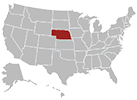
Unveil a pathway to a fulfilling career in healthcare by becoming a Dialysis Technician in Nebraska.
Make a difference in the lives of patients who need support, kindness, and an educated technician while they head off on their dialysis journey.
This guide will walk you through the prerequisites, reputable schools, salary expectations, and common FAQs for those looking to join the ranks of Dialysis Technicians in Nebraska.
Here’s what you need to know!
Page Navigation
- What You Need Before Becoming a Dialysis Technician in Nebraska
- The Best Dialysis Technician Schools in Nebraska
- Salary Prospects for Dialysis Technicians in Nebraska
- Frequently Asked Questions
- Are there any specific state requirements in order to become a certified Dialysis Technician based in Nebraska?
- How does Nebraska’s job market for Dialysis Technicians compare to national trends?
- Are there any rural opportunities available for Dialysis Technicians in Nebraska or are the positions available primarily in urban areas?
- Is certification crucial in order to work as a Dialysis Technician in the state of Nebraska?
- Which certifications are recognized in Nebraska for Dialysis Technicians?
- Is a background check required in order for me to work as a Dialysis Technician in Nebraska?
What You Need Before Becoming a Dialysis Technician in Nebraska
Before you kickstart your path, you first need to make sure you know what you will be in for.
Here are a few simple steps that you will need to follow along the way to becoming a fully certified and practicing Dialysis Technician.
Now, let’s get into it.
Education
First, it begins with your education. Before initiating your career as a Dialysis Technician in Nebraska, you will need to have obtained a high school diploma or the equivalent, a GED.
While this is the only entry point, employers will favor candidates who further their education.
A specialized certificate in Dialysis Technology or an associate degree will give you a far better chance of obtaining a high-paying job.
Training
Now you get to train! While it isn’t mandatory, entering into a training program will greatly enhance your career prospects.
Choosing a recognized Dialysis Technician training program is a pivotal choice on your way to a fulfilling career.
Seek out legitimate programs accredited by reputable organizations such as the Board of Nephrology Examiners Nursing and Technology (BONENT) or the National Nephrology Certification Organization (NNCO).
These programs will greatly cover a spectrum of essential subjects from anatomy and physiology to interesting hands-on skills you should know for dialysis procedures.
Clinical Exposure
Clinical exposure is one of the coolest parts of the training period.
It is at the very core of your experience and skill set as a dialysis technician.
Training programs will often have you integrate into clinical rotations in healthcare facilities.
All students can enjoy real-world scenarios to apply their knowledge.
Certification
While it isn’t mandated, obtaining certification from esteemed organizations is very much recommended.
Certification demonstrates your immense commitment to your career and complete excellence.
Certification also helps to boost your competitiveness in the job market.
The Best Dialysis Technician Schools in Nebraska
Finding the right school can be a little hard, but we have made it easy with the great options below.
Identifying which one would be best for you is crucial when it comes to becoming a Dialysis Technician in Nebraska.
Here are the best schools offering quality programs:
The University of Nebraska Medical Center
Duration: Between 1 to 2 years
Accreditation: Higher Learning Commission
Cost: Varied
Metropolitan Community College
Duration: Between 12 to 18 months
Accreditation: Higher Learning Commission
Cost: Varied
Central Community College
Duration: Between 18 to 24 months
Accreditation: Higher Learning Commission
Cost: Varied
Mid-Plains Community College
Duration: 18 months
Accreditation: Higher Learning Commission
Cost: Varied
Southeast Community College
Duration: Between 12 to 24 months
Accreditation: Higher Learning Commission
Cost: Varied.
Top 5 Schools in Nebraska
| School Name | Address |
|---|---|
| The University of Nebraska Medical Center | 42nd and, Emile St, Omaha, NE 68198, United States |
| Metropolitan Community College | 5300 N 30th St, Omaha, NE 68111, United States |
| Central Community College | 3134 US-34, Grand Island, NE 68801, United States |
| Mid-Plains Community College | 601 W State Farm Rd #140, North Platte, NE 69101, United States |
| Southeast Community College | 8800 O St, Lincoln, NE 68520, United States |
Salary Prospects for Dialysis Technicians in Nebraska
Understanding the salary you can expect as a Dialysis Technician in Nebraska is crucial.
While the figures will depend greatly on factors including location, experience, and the exact healthcare practice you work at, the average range is anywhere from $37,161 and $46,434.
Entry-level positions will begin on the lower end of the scale while seasoned technicians can often expect to earn near the higher end or even above it.
Annual Salary Range:Average Salary of Dialysis Technicians in Nebraska
| City Name | Salary |
|---|---|
| Omaha | $35,454 |
| Lincoln | $35,140 |
| Bellevue | $35,454 |
| Grand Island | $34,653 |
| Kearney | $34,653 |
| Fremont | $34,891 |
| Hastings | $34,653 |
| North Platte | $34,001 |
| Norfolk | $32,216 |
| Columbus | $34,653 |
Regional Salary in Nebraska
| Region | Employed | Avg. Annual Salary | Avg. Hourly Pay | Top 10% Annual Salary | Bottom 10% Annual Salary |
|---|---|---|---|---|---|
| Grand Island, NE | 60 | $62,490 | $30.04 | $80,030 | $42,820 |
| Lincoln, NE | 300 | $57,100 | $27.45 | $77,460 | $35,580 |
| Omaha-Council Bluffs, NE-IA | 910 | $62,850 | $30.22 | $93,660 | $38,010 |
* Employment conditions in your area may vary.
Frequently Asked Questions
Are there any specific state requirements in order to become a certified Dialysis Technician based in Nebraska?
Nebraska actually does not have any additional state-specific requirements for individuals to achieve Dialysis Technician certification beyond national certifications.
However, it is always a good idea to stay up-to-date and informed about any updates or changes to the state regulations.
How does Nebraska’s job market for Dialysis Technicians compare to national trends?
Well, Nebraska’s healthcare sector, including the many opportunities available for Dialysis Technicians, will often mirror national trends.
However, it is always a good idea to stay connected to your local healthcare networks and industry associations as this can provide great insights into the specific job market dynamics throughout Nebraska.
Are there any rural opportunities available for Dialysis Technicians in Nebraska or are the positions available primarily in urban areas?
Budding Dialysis Technicians can find opportunities in both rural and urban parts of Nebraska.
The distribution of available opportunities is super widespread and will vary.
You can explore job openings in plenty of different regions in the state.
Is certification crucial in order to work as a Dialysis Technician in the state of Nebraska?
While certification is not always required, it is very much valued by employers.
If you go forth with continuing your education, you increase your future job opportunities greatly.
Consider obtaining your certification from recognized bodies to enhance your job prospects.
Which certifications are recognized in Nebraska for Dialysis Technicians?
It is a really good idea to confirm this with your potential employers.
However, certifications from the Board of Nephrology Examiners Nursing and Technology (BONENT) or the National Nephrology Certification Organization (NNCO) are generally recognized by all healthcare practices/employers.
Is a background check required in order for me to work as a Dialysis Technician in Nebraska?
Some healthcare facilities and employers may ask you to complete a criminal background check and a drug test as part of the hiring process.
Make sure that you have an open mind and are prepared for this step if needed.
Feel free to raise any concerns with your potential employer.




